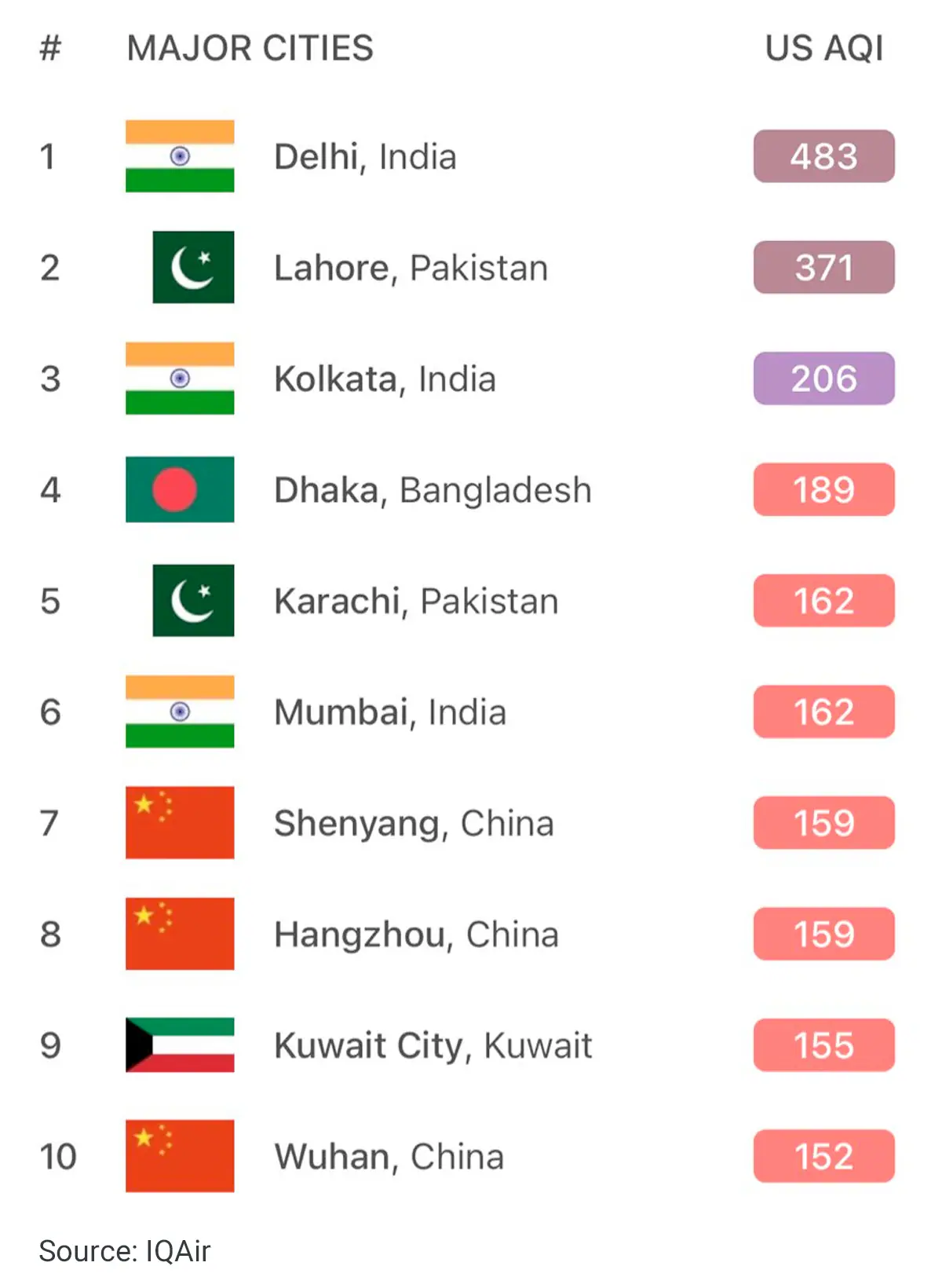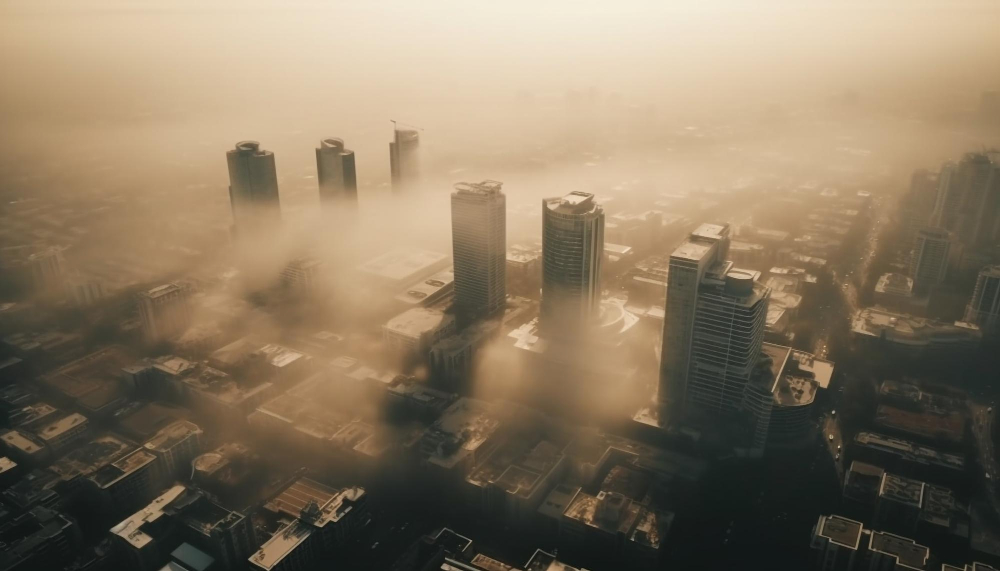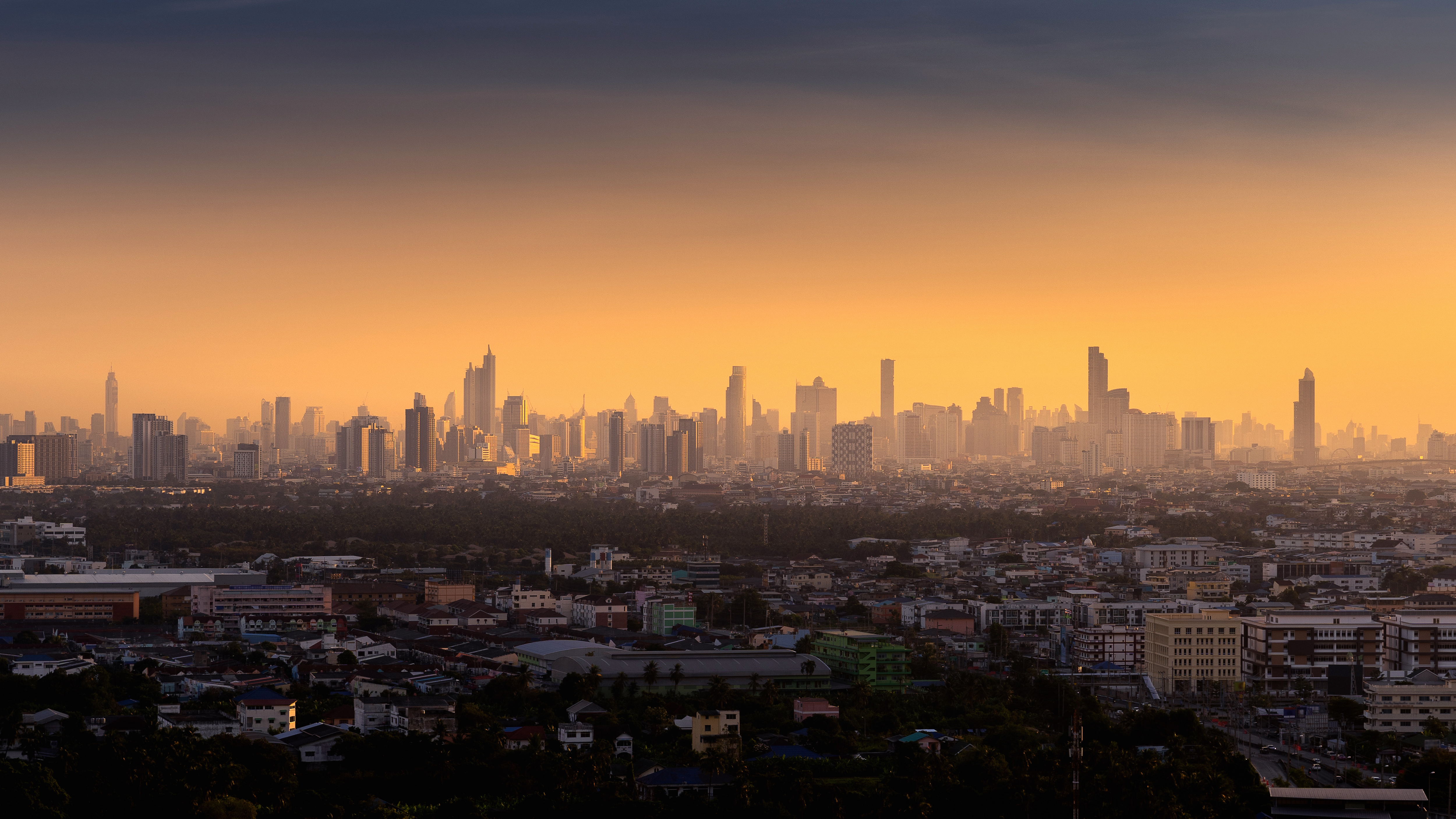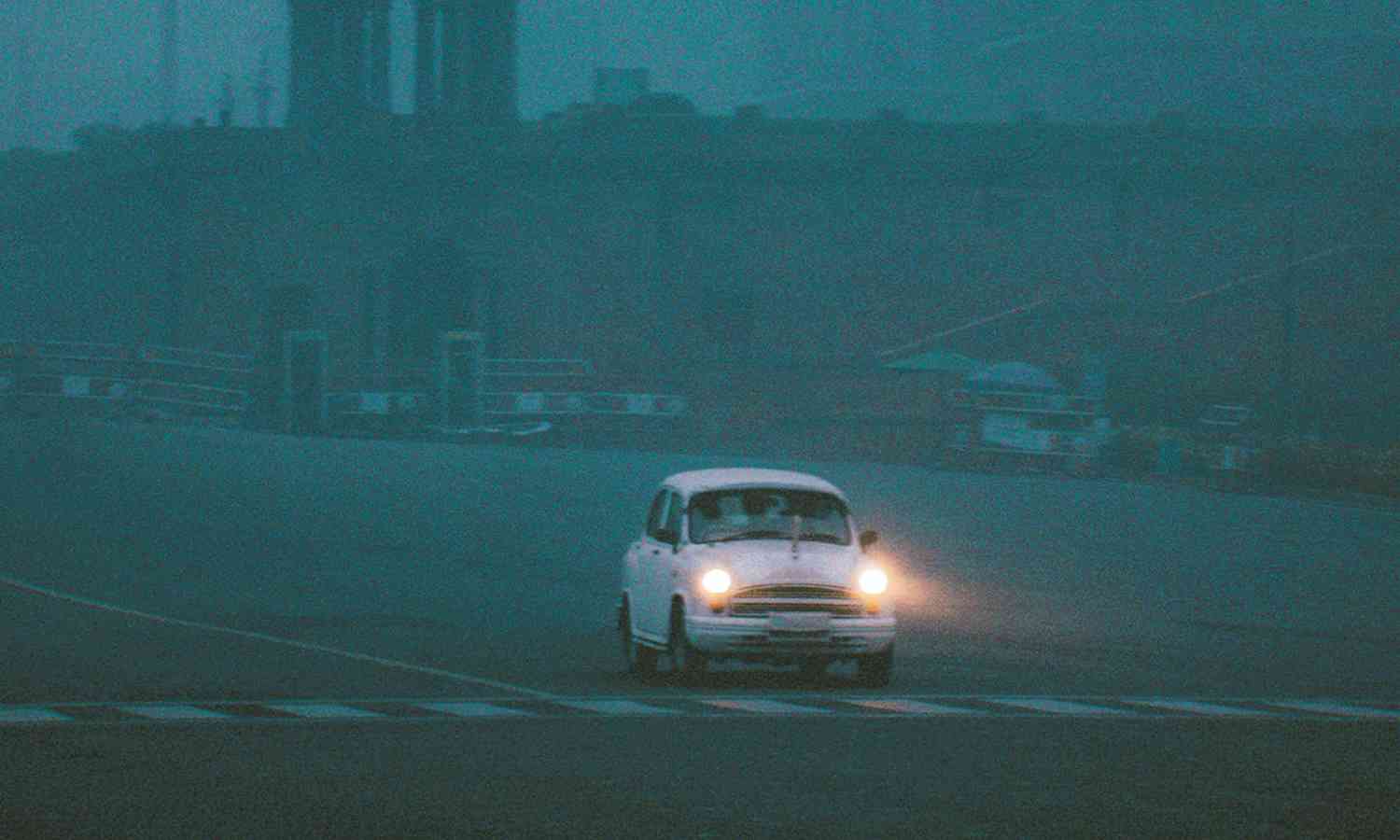In a concerning revelation, New Delhi, the capital of India, along with Kolkata and Mumbai, has found itself amidst the world's most polluted cities, according to data released by the Swiss Group IQAir. The air quality in New Delhi has reached alarming levels, persisting in the "severe category," with an Air Quality Index (AQI) of 483 as of 7:30 am today. This concerning trend poses a significant threat to the health and well-being of the residents.

The Alarming Statistics
New Delhi, once again, has taken the lead with an AQI of 483, closely followed by Lahore at 371. Kolkata and Mumbai are not far behind, registering AQI levels of 206 and 162, respectively. According to experts and medical professionals, a safe AQI for a healthy individual should ideally be less than 50. Unfortunately, these cities are experiencing levels far beyond the recommended limits.
Causes of the Crisis
Officials have attributed this surge in air pollution to a combination of seasonal factors, including low temperatures, stagnant winds, and the burning of agricultural stubble in neighbouring states. These circumstances have led to a dangerous accumulation of pollutants in the atmosphere.
Health Implications
The impact on public health is starkly evident, with numerous residents reporting discomfort, including irritation in the eyes and throats. In some monitoring stations, the AQI has soared to over 550, painting the air a dense grey. An AQI range of 400-500 not only affects healthy individuals but also poses a significant danger to those with pre-existing health conditions.

The Looming Threat of Particulate Matter
The concentration of fine particulate matter, known as PM2.5, has reached a staggering 523 micrograms per cubic meter, surpassing the permissible limits set by the World Health Organisation by 104.6 times. These microscopic particles, about 30 times finer than human hair, can infiltrate the bloodstream through the respiratory system, leading to chronic heart and respiratory ailments.
Emergency Measures
In response to this dire situation, authorities in the national capital have initiated a crisis plan. This includes the suspension of construction activities, advocating for the use of public transportation, and encouraging remote work arrangements whenever possible.

Cricket World Cup and Air Quality
With India hosting the Cricket World Cup, organizers have taken proactive measures to mitigate the impact of the hazardous air quality. Fireworks have been banned at matches in Mumbai and Delhi, in a bid to prevent exacerbating pollution levels.
The alarming levels of air pollution in New Delhi, Kolkata, and Mumbai serve as a stark reminder of the urgent need for comprehensive and sustained efforts to combat this environmental crisis. The health and well-being of millions of residents hang in the balance, underscoring the critical importance of immediate action to curb pollution levels and protect public health.
© Copyright 2023. All Rights Reserved Powered by Vygr Media.



















